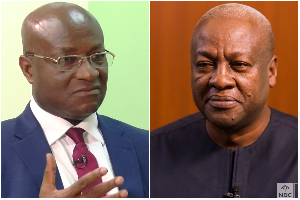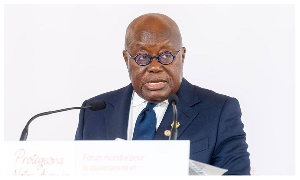Part One
The most lawless part of the world in the lives of the ECOWAS citizens is the ECOWAS region itself and the reality of this lawlessness is mostly felt when the citizen of ECOWAS have reasons to be moving from one member state to another or decides to reside in states other than that of his/her state of birth. An ECOWAS citizen out of his/her own state is just as good as any dangerous animal that must be treated like a dangerous criminal as there are no law in existence to safeguard the interest of the ECOWAS citizen. The ambiguities here give license to local criminals to exploit the vulnerable situation as local laws in practice are not in place to serve the non-nationals but only protect state nationals.
It is a common thing to hear fellow ECOWAS citizen expressing themselves on their bitter experience from the notorious custom, immigrations officials and unidentifiable hooligans at the boarders of ECOWAS member states that do whatever they like to ECOWAS citizens using these facilities. It is also a common practice of member states officials to engage in arbitrary laws totally counterproductive to the ECOWAS common spirit. These individuals only exist to make our common slogan “free movement of goods and services” meaningless, and the only way to overcome this is by a common working laws of ECOWAS Parliament.
A co-panellist at the BEN TV studio in the United Kingdom last week could not hold her frustration at the state of lawlessness of ECOWAS region by venting her anger on me and demanding, “Why are you people giving us ECOWAS Passport and denying us the right of using it, when all you do is treating us like animals anytime we are exercising our freedom of moving and living in ECOWAS member states?” She went on to demand “don’t you see how EU citizens are moving freely and working on each other’s land without much hustle?”
In reply, I focused my gaze on the young lady in an empathetic manner and asked her, “did you the individual and collective citizens of ECOWAS consciously demanded for this Common Passport as informed citizens of ECOWAS or it was just given to you by the “mythical spirit" of ECOWAS?” When the gentle lady in a subtle voice conceded that we actually did not engage in any positive action in our demand for the ECOWAS passport as part and parcel of our ECOWAS citizenship rights but was just given to us out of an inevitable necessity, I then went on to inform her that the problem of ECOWAS is the citizens of ECOWAS like she and I. I explained to her that if we want the laws of the region to be standardized and balanced enough to serve the interest of the citizens within and beyond their respective national laws and borders, then the one hundred and twenty (120) members of the ECOWAS parliament must be elected directly by the nearly 300,000,000 combine citizens of the fifteen member states on the basis of Universal Suffrage.
I further explained the satiation to her along the principle of democracy base on ownership and responsibility as in the nature of participation in the process of arriving at representations. I associated the rules of ownership and responsibility in relation to the degree of participation in the choice of representatives to make and execute common laws. Thus the more the strong sense of ownership of citizens, the more direct is the right of citizens in the election of those that represent them in the making and execution of laws. Contrary to direct participation is the indirect participation that is associated with citizens lesser sense of ownership.
I then demonstrated to her how possible it is to create a false sense of ownership in a people when in reality; the ownership in question is a mere elusion. True ownership I said is measured by how much of whatever is at stake is available for the wellbeing of citizens and how justice (law) serves the interest of the citizens. In each nation of the ECOWAS member states, the law made by the executive parliament elected by the citizens of member states is indeed not good enough when the citizens is in desperate need of the support of the law but in the ECOWAS common law, it is a nonstarter.
I then employed the citizens’ indirect participation to explain why ECOWAS citizenship at this point continued to be a typical case of an illusion whose reality resides in the awakening of the masses to their common citizenship by their active demand for the duties and responsibilities of such citizenship.
Every parliament is set up to make laws on behalf of those the institution is in place to serve. The ECOWAS Parliament is in place solely to serve the citizens of ECOWAS. Thus the ECOWAS parliament is in place to make laws for the citizens of ECOWAS.
The kinds of laws parliaments make depend on the modality by which the representation to the parliament is arrived at. Thus a parliamentary status can either assume an executive authority to be called an EXECUTIVE PARLIAMENT or assume an advisory authority to be referred to as an ADVISORY PARLIAMENT. What then determines the status a parliament assumes?
The principles of Advisory and Executive parliaments are an indication of the importance to which citizens attach to the working of the parliament. It is premised on the understanding that if a people hold in high value the issues of concerns to which a common parliament is meant to serve, such citizens arrived at mandating those to represent them through universal direct suffrage. On the other hand when the value held or shared for which the parliamentary representation intended is less. then the citizens will prefer others to be voting indirectly on their behalf. Thus executive parliament is about arriving at those to be making high value laws to which the people are very passionate about while advisory authority is all about laws of less importance to the electorate.
So the way we arrive at our Ghanaian parliamentarians is what gives them the executive authority they are currently enjoying and the laws made by this parliament carry executive weight. The poor laws of the ECOWAS are just due to the way we are arriving at the ECOWAS parliamentarians that only give them an advisory authority.
An advisory parliament is arrived at when the members of this parliament obtained their mandate through indirect votes of those being represented. When members of an ECOWAS member states are elected from the parliaments of their respective member states to go and represent their people at the level of ECOWAS, such representation is referred to as indirect representation. Here the members of the parliament campaigned to their people in their various constituencies to represent them in their national parliament and not at the ECOWAS parliament. So when these same people are then elected or appointed in the course of their duty to double up as the representatives of Ghanaians in the ECOWAS parliament, that then make all the laws such individuals are going to be making to just have advisory authority over the institutions of ECOWAS. Member states institutions can then choose to regard or disregard such laws as they are mere advice being given.
The citizenship of ECOWAS suffers greatly to the advantage of the citizenship of member states. The reality of ECOWAS citizenship of an individual superseding the citizenship of member states then become impossible as the principle of citizenship only assumed its real form when such citizenship is accompanied with relevant laws or an institution of law making with executive authority to solely to serve the interest of the citizenship. (Continue in Part 2)
Kofi Ali Abdul-Yekin
Chairman/Coordinator of Action Group of Africa (AGA)
skyp@ kofialiabdul1, yekali2002@yahoo.com
Opinions of Thursday, 26 July 2012
Columnist: Abdul-Yekin, Kofi Ali


















